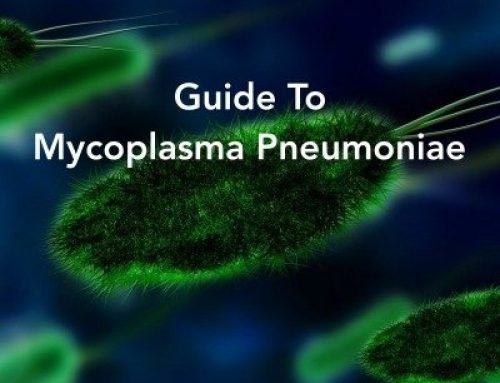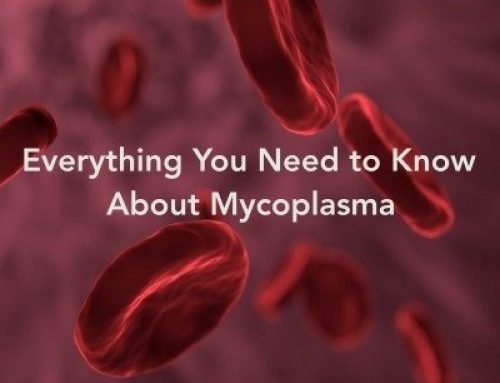The Importance of Vitamin B12 & Foods Rich in It
Without doubt, vitamin B12 is an important B vitamin which is necessary for the health of the nerve tissue, as well as for optimal brain function and red blood cell production. This water-soluble vitamin can break down in water and travel through the blood and it can be stored in the body for up to 4 years. Surplus vitamin B12 is eliminated through the urine. It is found naturally in meat products and it can be produced industrially through bacterial fermentation synthesis.
However, nowadays, as explained on Draxe, the number of people who are lacking this vitamin is on the rise and this deficiency is considered to be one of the leading ones in the world and a real concern in countries like Mexico, the U.S, some parts of Africa, and South America. According to the National Institute of Health, around 1.5 to 15 percent of American citizens suffer from this deficiency and the number is expected to rise in the future.
What Are the Health Advantages of Vitamin B12?
As pointed out on Draxe, vitamin B12 is pivotal for the central nervous system because it keeps the nerve cells healthy and also assists in the creation of the nerves’ protective cover known as the myelin sheath. It is also needed for a quality digestion and a healthy heart and it can be acquired through specific foods, vitamin B12 injections, or intramuscular vitamins.
Furthermore, as seen on Very Well Fit, research points out that this vitamin has the capacity to avert some types of cancer. Namely, the research showed that the women with cervical dysplasia (which can cause cervical cancer if not addressed timely) who supplemented with vitamin B12 and elevated their intake of thiamin, riboflavin, and folate had a lower risk of developing this cancer.
Vitamin B12 can also be of great aid to fight off eczema when topically applied. In one study, as explained on Very Well Fit, the participants who had eczema experienced reduction in the eczema’s severity as a result of their twice-per-day treatment with vitamin B12 cream which was not the case with the placebo group.
Other claimed benefits of vitamin B12 are the following ones:
- Faster stroke recovery
- Healthy eyesight while aging
- High levels of energy
- Better memory
- Strong immunity
- Quality sleep
- Better mood
- Good for the bones
- Supports DNA healthy and maintains the cells younger (one feels and looks younger)
What Happens when We Become Deficient on Vitamin B12?
As seen on Draxe, this vitamin deficiency is not always easy and straightforward to discover, especially if we take into consideration the commonness of its symptoms like fatigue and poor focus. Medical diagnosis of vitamin B12 deficiency is done on the basis of the measurement of its levels in the blood. But, studies indicate that almost half of patients that have illnesses associated with vitamin B12 deficiency do not have problems with their vitamin B12 values. This is why doctors may also include secondary options for diagnosis.
The deficiency takes place when the body does not get the needed amount of this vitamin and, as pointed out on Medical News Today, it can trigger an irreversible and serious damage, particularly to the brain and nervous system. These are its major symptoms:
- Pain in the joints
- Pain in the muscles
- Chronic fatigue
- Dizziness
- Shortness of breath
- Weakened memory
- Poor focus
- Depression and anxiety
- Problems with the oral health
- Heart palpitations
- Nausea, cramps, diarrhea
- Reduction in the appetite
Who Is at a Higher Risk of Vitamin B12 Deficiency?
The most susceptible group is considered to be elderly people due to their lower production of stomach acid which is required for the adequate conversion of this vitamin. Furthermore, people who are on a plant-based diet like vegans (who avoid eating all animal products) are at a higher risk due to the exclusion of foods that are the major sources of vitamin B12 and are therefore often advised to opt for daily supplementation with vitamin B12.
Nonetheless, as seen on The Vegan Society, vegans consuming sufficient amounts of fortified foods or vitamin B12 supplements have a much lower chance of vitamin B12 deficiency than meat eaters. By opting for fortified foods or supplements, vegans still manage to satisfy their body’s need for vitamin B12 without contributing to environmental damage and causing suffering of sentient beings, as explained on The Vegan Society.
Moreover, the risk of vitamin B12 deficiency is also bigger in smokers, alcoholics, anemic individuals, and people who suffer from Crohn’s or celiac disease.
Treatment and Prevention of Vitamin B12
As emphasized on Web Md, people can successfully avert problems with lack of vitamin B12 by following a balanced diet comprised of meat, seafood, poultry, dairy, and eggs. If you have decided to follow a plant-based diet or if you have been diagnosed with a condition which is decreasing the body’s ability to absorb nutrients, you should include foods fortified with vitamin B12 or take it in multivitamin or other supplement form, of course, in consultation with your physician.
Regarding the treatment of this deficiency, whose goal is to up the vitamin B12 levels in the blood, those who cannot absorb vitamin B12 properly will need vitamin B12 shots, as well as supplements in the form of a nasal spray or a pill. In case you are an individual following a plant based diet and you have been diagnosed with this deficiency, there are several treatment options, i.e. add vitamin B12 fortified grains to your diet or go with vitamin B12 injections or pills. In elderly people, the usual therapy is daily vitamin B12 supplement or a multivitamin containing this vitamin. In most cases, as noted on Web Md, the treatment solves the problem; however, the nerve damage that may have taken place because of the deficiency may be long-term.
Foods Abundant in Vitamin B12
This vitamin is mostly present in products from animal origin, for example, meat, eggs, fish, and dairy. It is not typically found in plant foods (except foods fortified with vitamin B12 such as specific products made from soy, plant milks, and breakfast cereals). Below, check out the best dietary sources of this pivotal nutrient:
- Pork
- Poultry
- Lamb
- Beef
- Ham
- Fish like tuna and haddock
- Milk, yogurt, and cheese
- Eggs
- Nutritional yeast products (some)
The Recommended Daily Amount of Vitamin B12
Similarly to the needed amount of other vitamins, as noted on Web Md, the amount of vitamin B12 is conditioned by numerous factors like age, medical conditions, meds you may be taking, and your diet and eating habits. Here are the recommended daily levels of vitamin B12 according to age:
0, 4 mcg- infants up to 6 months of age
0, 5 mcg- babies aged 7 to 12 months
0, 9 mcg- children aged 1 to 3
1, 2 mcg- children aged 4 t o8
2, 4 mcg- teens aged 14 to 18 (2, 6 mcg if pregnant and 2, 8 mcg if breastfeeding)
2, 6 mcg- adults (2, 6 if pregnant and 2, 8 if breastfeeding)




Leave A Comment